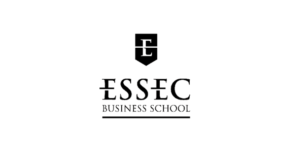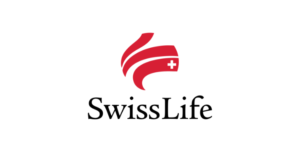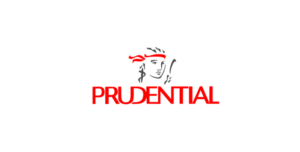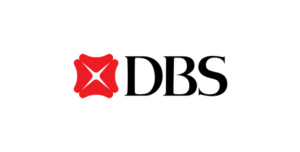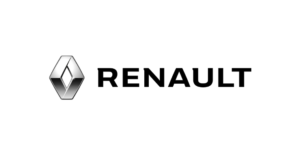-

LEARNING EXPEDITION OFF/ONLINE
Discover the new ways companies work to keep growing
CONTACT US to organize your Learning ExpeditionNEW WAYS OF WORKING
NEW ! Virtual Learning Expeditions
Why going digital?
– Cost-effective for large number of participants
– Explore multiple ecosystems around the world at the same time
– Flexible timings

Explore how new ways of working can help businesses to stay ahead in a fast changing world
The way people work has changed. In a fast-changing and uncertain world, companies need to be agile, leverage on data and collaborate with their ecosystem to stay ahead in their market. New ways of working towards innovation have emerged to experiment new technologies and create a spirit of innovation within large firms. Whether it is via new methodologies such as design thinking, or by opening up to new thinkers and generating more collaboration, new ways of working aim at innovating to accelerate the successful development of new technologies and ideas.
We organize learning expeditions, as well as virtual learning expeditions, in different cities across the world to help your teams understand how the most innovative companies have succeeded, which mindset and methodologies help them to stay ahead. Our learning expeditions aim at inspiring your teams to change the way they work.

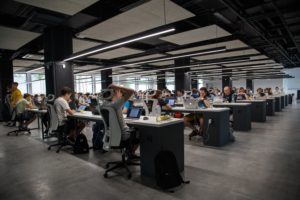



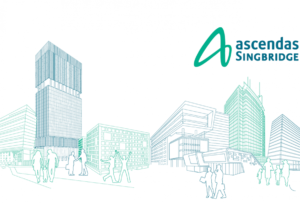

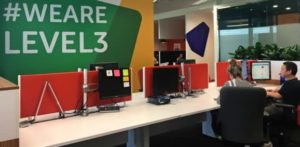





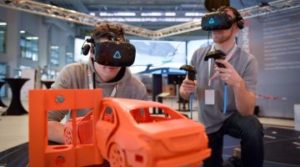



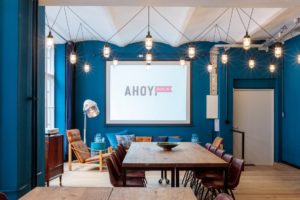
You want to:
• Enrich your vision by looking at how multinationals, governments and startups can collaborate together for a more thriving and lasting innovation.
• Get inspired by the design and principles of coworking spaces to foster co-creation towards revolutionizing ideas.
• Identify key aspects and solutions brought by the new ways of working elsewhere to reboot your company’s innovative spirit and remain competitive with cutting-edge technologies.
• Improve the cohesiveness of your team for more effectiveness
• Embark your key stakeholders into your new vision of the world by offering them to participate in a learning experience designed to deliver on your messages
Where to learn from?
With a multitude of new coworking spaces, large investment funds and an innovative ecosystem, two cities are leading the way in promoting and developing new ways of working: Singapore and Berlin.
Singapore, between creative and smart working spaces
The Smart Nation excels in the art of creating collaborative environments, between large groups and startups, or between the private and public sectors, which accelerate the experimentation and implementation of new solutions.
1) Co-working spaces drives innovation:
Home to a multitude of startups, Singapore is the most innovative nation in Asia according to the Global Innovation Index. Between March and October 2016, the number of business innovation centers in Asia grew by 35%, the largest among all regions of the world.
Over the recent year Singapore has seen booming the development of co-working spaces, disruptors in the marketplace for their nature of offering more flexibility at a lower cost than traditional offices. Another key aspect of co-working spaces is that they allow for a smoother local integration for foreign startups which gain access to a network of resources and talents.
Innovative hubs of diverse thinkers are thriving in Singapore (Found, The Bridge Ascendas) as well as working spaces specific to one industry (Pier 71, AirMaker).
Singapore boosts innovation and the development of cutting edge ideas with collaborative, dynamic open spaces that acts as laboratory for innovation.
2) The asian hub of Fortune 500 HQ:
In Singapore global firms through new ways of working adopt a human-centered approach and encourages inner business disruption to develop the cutting-edge ideas and maintain business growth.
A main reason for the strong presence of intra-company innovation, is that Singapore is home to many large companies’ headquarters. According to a 2018 KPMG study, Singapore is the city with the most Fortune 500 companies’ headquarters in Asia. The singaporean Economic Development Board (EDB) counts that 46% of Asia RHQs are based in Singapore across a diverse range of industries and that in terms of technology MNCs, Singapore accounts for 59% of Asia RHQs.
With these figures in mind, side to side with the constant innovative technologies and concepts arising from the local startups, companies in Singapore chose to maximise the city assets and opened their door to innovation. With a co-working space integrated within a company’s headquarter for the first time worldwide (Foundry & Level 3 by Unilever), the set-up of corporate innovation labs (Kris Lab by Singapore Airlines, Expedia Lab…) and accelerators (The Visa Innovation Center, KPMG Digital Village) multinationals in Singapore are fostering co-creation, welcoming and accelerating pioneering ideas to remain at the top of the latest technologies and innovations in their industry.
3) A strong private-public-university collaboration:
In Singapore, the strong collaborative mindset between private (startups, corporates) and public (government, research, universities) bodies represents another key asset in the success of the city innovation ecosystem as it helps accelerate the innovation process from experimentation to implementation. One north – Blk 71 is a perfect example of such a hub. It counts 22 accelerators for 250 startups in one building gathering government bodies, universities, MTN and startups.
The city supports numerous research centers parks that gather actors from different backgrounds to tackle challenges and bring cutting-edge solutions in specific industries (CleanTech Park).
The place sets a perfect ground to gain a perspective of the advantages and gains of public-private cooperation and open innovation for disruptive groundbreaking and futuristic results.
Berlin, getting the best out of people
Similarly, by allying startups and larger firms, Berlin,the european hub for innovation and technology, brings people to collaborate and foster creativity and business innovation.
1) An innovation hub:
Berlin is the 2nd city in Europe with the largest number of unicorns and represents the 3rd largest innovation hub after London and Paris. With nearly 21,000 patents granted at the European Patent Office in 2018, Germany’s share of patents is almost twice that of France and the UK combined. This shows the commercial viability of innovations made in Germany.
Six of the EU’s top ten R&D companies are German enterprises, with car manufacturer Volkswagen leading the ranking. More and more companies are establishing international research facilities in Germany.
The mid-sized businesses are particularly receptive to new processes of working and a large part of them have already adopted the practice of open innovation. With strong regional networks with the rest of the country, large companies can be found working with startups, SMEs and local universities or scientific institutes to develop innovative products and services for the global market.
The rise of these collaborations demonstrates how combining the speed and bold mindset of startups with the strength of a large and established company can be beneficial to all parties (FoundersLane, Infralabs).
Another approach is a vertical and creative way to push employees and motivate parties to foster more ideas and creations. These new ways of working help large groups follow the rhythm of technological improvements within their respective industries. (DB Mindbox, Deutsche bank innovation Lab, MBition by Mercedes, Lab1886 by Daimler)
2) How Berlin became an innovation hub:
The private sector has been the main driver in pushing innovation in Germany. Rocket internet, a startup incubator specialized in building copycats in emerging countries, and Plug and Play, an american early stage investor, both played a major role in the launch of accelerators in Berlin (APX, Volkswagen Lab) and contributed to the company motivation to innovate.
Other factors of Berlin’s transformation for open innovation lies in the city infrastructure which offers an administrative rapidity to start a startup and affordable rent prices.
*The city also gathers a pool of talent, with top universities and a good access to buzzing tech talent hubs like Poland, Czech Republic, Russia, or Ukraine with significantly lower hourly rates and strong engineering schools.
Collaboration and exchange between diverse backgrounds and networking opportunities are set possible through co-working and innovation spaces (AHOY Berlin, Betahaus) establishing communities of disruptors and forward thinkers cross industries or respective to one field (Finleap FinTech ecosystem)
Singapore and Berlin gather spaces and players fostering new ways of working for disruption and innovation in a broad range of industries. Depending on your industry focus, IEV will be able to draft the best suited learning expedition to understand how reinventing the working approach of a business can push innovation and lead business success.
Interested to organize a learning expedition?

